‘Mulan’ cast on women empowerment, racism and the COVID-19 pandemic
Los Angeles — Coming perfectly on the heels of the #MeToo movement and the cries for equal pay for women and women representation in the movie industry is the classic story of Mulan.
New Zealander filmmaker Niki Caro (“Whale Rider,” 2002) brings the epic tale of China’s legendary warrior to life in Disney’s “Mulan” which stars the 32-year-old actress Liu Yifei as the fearless female warrior who takes the place of her ailing father, masquerading as a man, and fighting against and with men.
Also starring Jet Li as the Emperor and Donnie Yen as Commander Tung, the movie is the live-action feature of the animated 1998 version where our very own Lea Salonga was the singing voice of Mulan.
Liu Yifei, who was born in Wuhan, Hubei, China, does a lot of action scenes in this version. Although also a singer, Liu does not sing in this movie. In fact, expect no singing from this live-action adaptation of the classic animated film.
After doing a lot of Chinese TV shows, Liu Yifei graduated to doing films like “The Forbidden Kingdom” (2008) with Jackie Chan and Jet Li and “The Assassins” (2012) with Chow Yun-Fat and “Outcast” (2014) with Nicolas Cage.
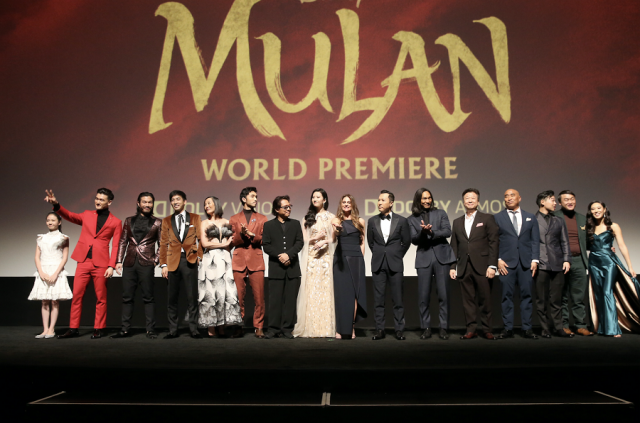
Jet Li, 56, who was at one time considered the heir to the late Bruce Lee and who made films like the “Shaolin Temple” franchise and “The Expendables” (2010) with action stars Sylvester Stallone, Mickey Rourke and Jason Statham, came out of retirement and returned to the big screen to play the Chinese emperor in “Mulan.”
On the other hand, Donnie Yen, 56, from Canton, China, is a martial arts master who got his first big break when he appeared with Jet Li in “Once Upon a Time in China II” and also teamed up with Jackie Chan in “Shanghai Knights” in 2003.
We recently interviewed these talented actors and director in downtown Los Angeles and below are excerpts of our conversations with them:
Liu Yifei
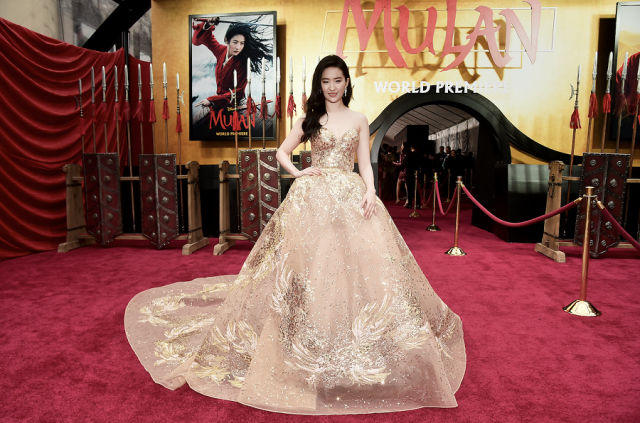
Why is it so important for you to do this version of this movie?
I’m so happy and thankful for this beautiful opportunity because I think it opens up my imagination and it really is telling me that I’m on the right path.
When they’re asking me what is your goal as an actress — this is a very big question — I always say, don’t limit yourself. And some people might not get what I say but I’m not that kind of person. And this is showing that I’m on my right path and I love acting so much I would never give up and I enjoy every moment. And I’m happy that Mulan as this character, she too, she never gives up, she had the courage to look deep inside herself and to make choices to be the best version of her.
When you were making the film, were you thinking of both American and Chinese audiences?
The process is you don’t think about it. I don’t know if Niki agrees with me or if you agree with me, but my own process is, I can’t think of the result because it’s just so pure, the passion for the movie. You have to lose yourself and throw yourself in that character so you can’t think of anything else.
But to the result, I think if it’s a good movie, if the character herself is convincing then for both countries or for the world, it’s the same.
It's a story where women are empowered but at the same time conveying traditions are much more ingrained in a patriarchal society. How do you combine that?
I totally agree. There is no definition for I love you therefore because. I love you just because I love you. For a daughter, as a father, as a lover, that is so…it’s really the same for everything. And I love the openness of the story; I love to discover all the possibilities in that story because even though I’m Chinese, even though I play different characters, each character for me is a brand new journey.
I learned Mulan too, it’s not just oh you’re from China, you know her. No, for this journey I had to learn all the conflict and every detail that’s in her mind. I’m trying to put the pictures together. And I think we can do great things without knowing and accept who we really are. If we embrace everything we have and we do, we are going to achieve more.
You are originally from Wuhan. Do you still have family there? Your thoughts?
Thank you so much for your care in asking. My grandma, she is still in Wuhan and she’s doing great, thank you. People are being really careful. They’re really aware of themselves and being careful for others too. For me, I just really hope that this will work out soon and things will get better everyday.
Who inspired you in your career?
It’s Stanislavski. I think all the actors really have to thank him for what he’s done all his life.
Can you tell us about the audition process you had to go through?
Even in my wildest dreams I never really imagined that I would work with a woman director who is talented in this scale of a big movie, that’s happening now. So if you ask me if I am nervous, of course I’m nervous.
But on the other hand, I had to ask myself: Why do you want to audition? Is it just because this is a huge movie, what do you want? So I asked for a script to look at and it took me one day, the whole day, to process.
And then even to audition I did my homework; I wrote down notes throughout the flight. And I’m so sure that it’s me…no, I’m going to bring the strength and the acting in that day. But all I can do is just throw myself in that experience. I can’t think of any results.
And then after that, I went through the physical training. It’s also very interesting. Everything I do they had to record. You’re like, ok, I did an ok audition, a good audition, I don’t want to ruin it with less pushups, you have to push yourself so hard. And every time I am done with something the trainer will write something on that book, this thick, writing specific things, I don’t know what he’s writing.
What kind of inner motivation did you find in yourself to justify the action of Mulan or to be Mulan? You have to have some experience in your life.
What you say is one point, experience of yourself but I’m looking for something that is present. Because memory itself, of course memory is important but it’s always something you already had.
To learn a new experience means a whole other group of new surprises. Every night when I do my homework for the character, throughout my way, and if I find something new that passion can get me through tomorrow’s whole day training. That’s just really inner strength and I love that I feel for, the emotion that I felt for the character would really push me through all the journey that I need for training or for shooting. That feeling is here in my heart.
Niki Caro
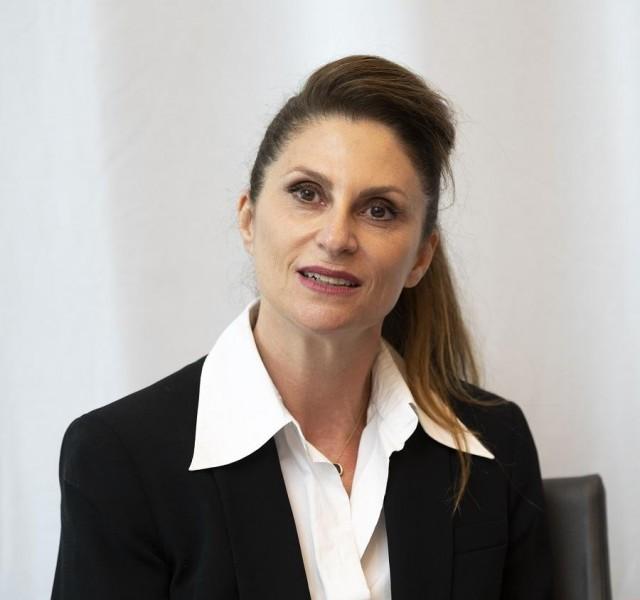
When you were making the film, do you have to think of both American and Chinese audiences?
My whole career I’ve made movies outside of my culture, beginning with “Whale Rider.” I’ve developed a way of working where I prioritize being authentic and being specific to that culture. I realize when I do that, it becomes universal.
It was very easy actually. With this movie, the first thing I did was go to China and experience that incredible country for the first time. Then across departments right through pre-production, production, even post-production, a deep research into the culture so that we could get as specific and authentic as possible.
Why is it so important for you to do this version of this movie?
For me, it was such a privilege to tell a story that’s been relevant for hundreds and hundreds of years, over a millennia really. To tell it in live action in 2020, to commit to the real journey of a young woman who goes to war to save her father’s life, disguises herself as a man and then commits to her own authentic power and fights as a woman, to tell that story now feels very relevant.
To be a female director who tells it now is even more relevant because like Mulan, I connected to my own power as a woman to tell it. I don’t disguise myself as a man to direct movies. I don’t direct movies as a man would. I direct them as a woman does.
There’s a line in the film that Gong Li’s character says to Mulan, "it’s impossible for a woman to be leading a man’s army." And I love that line. That line speaks to me because that’s my job; I lead a man’s army. But this army, and it was a mighty army, my filmmaker army, all my generals were women. So it’s a very female-lead storytelling and I’m so happy and satisfied and I was particularly so on International Women’s Day to have an example of what a movie looks like when it’s run by women. It looks like this, it’s this big, it’s this spectacular, the action is this adrenalized and it has I hope depth and emotion. I’m very proud of it.
You are telling a story where women are empowered but at the same time conveying traditions that are much more ingrained in a patriarchal society. How do you combine that?
What you define as patriarchal is also deeply cultural and historical and important for those reasons. Mulan brings honor to her family in very nontraditional ways. Her sister brings honor to the family in very traditional ways. So that’s the way we kept both in balance. Because I didn’t want to not honor Mulan’s sister’s journey either to be a traditional daughter in that time that is equally important.
Who inspired you in your career?
When I was a teenager, when I first wanted to make films, I couldn’t see anybody who looked like me that directed movies until Jane Campion. And I remain Jane Campion’s most loyal and devoted fan to this day because she not only looked like me, from the same part of the world, she saw like me.
And yesterday was so moving because we did a lot of TV interviews and we were interviewed many, many times by women and many times by Asian women. And it was so touching that they could see themselves in Mulan and “Mulan” was very meaningful to them. Now I think there’s a reason for that, of course “Mulan’s” always been there for all time but I think telling the story through a female lens, the story being told by somebody who looks like you, sees like you, feels like you, might be the difference here. And I’m very honored to have been allowed to tell it on this scale in this time.
Can you tell us about the audition process you had for finding your Mulan?
We searched the world for a year and we couldn’t find her. We searched all through China, couldn’t find her. So we started again. And Yifei was available and so we brought her to Los Angeles, she took a 14-hour flight from Beijing — worst jetlag in the world, FYI. She arrived in the evening and didn’t sleep that night. Thought she could sleep the next day because the audition wasn’t till 2, but the head of the studio asked her to come in and have a meeting so the poor thing, no sleep, had to wait around for me.
She did a two-hour audition in English; even though she speaks beautiful English it’s not her first language. Five scenes, one of those scenes five pages of dialogue and I was so impressed by her and I was so interested in how much she had to give so I kept exploring and pushing and pushing. And she was so fierce, so impressive as a dramatic actress and I was so indulgent because I was enjoying myself so much. So that took two hours.
And then we sent her to the other really critical part of the process, which was to send her into the gym with a personal trainer to do a punishing 90-minute workout that was designed to test her physical limits and to see whether she was the warrior that I needed. And she went through this whole process with jetlag, no sleep, Beijing, L.A., and never ever once asked to stop, never asked to take a break, never said I can’t do it, always did exactly what was asked of her and more.
Jet Li
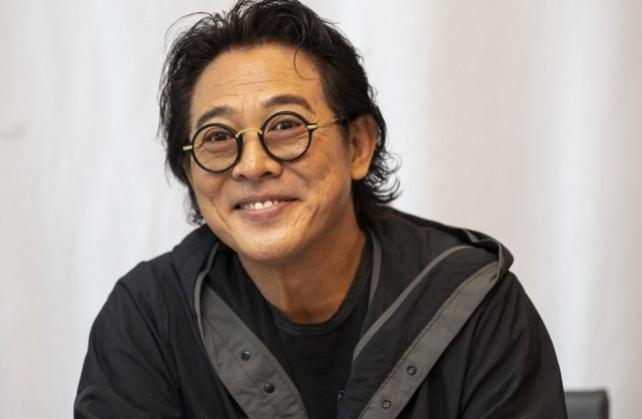
You've been in retirement for a long time. Why were you interested in doing this movie?
I didn’t want to take it, I turned it down. I said “Mulan” everybody knows, why make another one? In the beginning I heard of “Mulan,” then I know the end. I watched it a lot of times “Mulan,” everybody knows it, so how do you make everybody happy with a new “Mulan?” Then my daughter, 15 years old, she says, can you make the movie for me?
Then I called Donnie, did you take the job? He said I am still thinking about it. I don’t want to do it, but my daughter got me to do it, please think about it, when you decide, tell me. A few days later he called me and said oh, my daughter wants me to do it too, so we can just do it together for the daughters, for the next generation. That’s why I took the job, I’m so glad.
What is your reaction to the fact that Disney is not opening the movie in China because of the corona virus?
I always think, I am a little bit crazy, I always think about a big time, universe, humans, total family, living on the earth, I think it’s normal. Everything for me is normal, because we will have in our life a beautiful time, good time, for sure we will have a normal time and sometimes we have a difficult time. Right now is a difficult time for everybody and start there. We always need to help each other. We always need to work together. So this is not the only movie that is delayed, all the movies are delayed in Asia, not only China.
Bruce Lee, Jackie Chan and Michelle Yeoh are all into martial arts. Is it important for an actor to know that in order to be successful in China?
The first offer I got was when I was 11. They said come to the States, for a Kung-Fu demonstration and then go back, in 1974. In Hong Kong, they had said, Bruce Lee had just died the previous year, do you want to grow up and become him, become an action hero? I was 11, I said okay.
So then the movie company was waiting for me for five years, so when I was 16, they said do not wait any longer. We are giving you your first movie, “Shaolin Temple.” I think because I learned martial arts I also share a culture, a language. There are no borders. Today, not only Chinese people do martial arts. Using your body to tell a story is good.
Donnie Yen
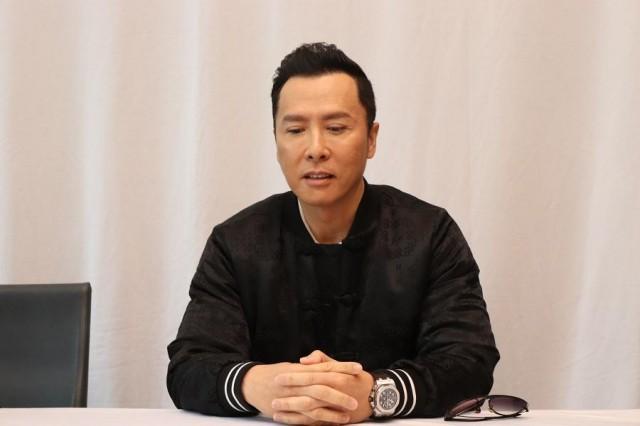
Why were you interested in doing this movie?
One of the main reasons is my daughter. I have a special attachment to this particular subject, a female hero. My first martial arts teacher was my mother, We used to have a school. I used to live in Boston when I was a child and she used to have a martial arts school in Boston and she taught all sorts of students, from MIT professors to Harvard students. So she was my mentor. She used to get me up in the morning and use a wooden sword and whip me if I didn’t work out, I had to train before I went to school.
Secondly of course it’s my daughter, she’s 16 now, but she grew up watching the original “Mulan,” the cartoon one, probably over 100 times. I watched it with her, we sang the classic songs probably another hundred times.
Third reason was my wife, my partner, we run a production company in Hong Kong and she’s always been my friend, my soul mate and my boss. So I know firsthand what it’s like to, I think it’s important for a movie like “Mulan” because unfortunately there are still many places in the world where females do not have the same equal opportunities as the opposite gender unfortunately.
And I think a film like “Mulan,” produced by Disney in this grand scale that everyone can see, this is something that, it gives them hope and support and it inspires them to be anybody who they want to be and just as well as anyone. It doesn’t matter what gender you are. In the beginning I did turn it down. I didn’t really want to do “Mulan” because I found out there’s no singing. But my daughter said you have got to be in “Mulan” Papa.
What is your reaction to the fact that Disney is not opening the movie in China because of the corona virus?
It’s out of our control, we are professional actors, we came in as actors and we did the best we could.
There are more important things than making a movie, you are dealing with people’s lives here.
I have to use this opportunity to express my prayers to those who have been affected and hurt. A lot of people in China have suffered because of this virus, and we really have to support those, especially the medical staff and the doctors, who sacrifice themselves to save others. I think that is the big moral.
And not only is it affecting Chinese people, this virus is also affecting many places in the world, globally. I think that we should not let people use this as an excuse to point fingers and to discriminate. We should have more of a unity and fight this together as a global citizen.
Bruce Lee, Jackie Chan and Michelle Yeoh are all into martial arts. Is it important for an actor to know that in order to be successful in China?
Pretty much. I think it is easier to communicate with people through action movies. That’s why action movies usually sells tickets the most. I mean if you look at all the blockbusters, the Marvel movies are action heroes. For decades, Chinese actors are known for doing martial arts. But we are also professional actors. The market now has changed so much. — LA, GMA News



